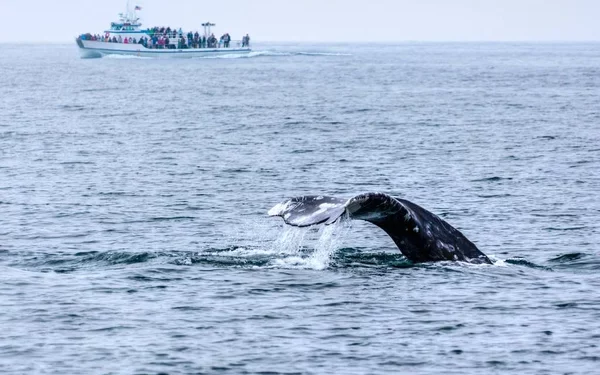Are you wanting to experience whale watching in Juneau? If so, then it is important that you know the dos and don’ts of this activity.
You’ll need to follow certain rules set by both the tour company and the National Marine Fisheries Service to ensure your safety as well as that of the whales.
Knowing what to do (and not do!) will help make your experience more enjoyable.
So let’s get started!
Do Follow the Rules of the Tour Company
It’s essential to abide by whatever regulations the tour operator has put in place, so as to ensure a safe and enjoyable experience for everyone involved.
This means respecting boundaries set by the tour company, such as not entering prohibited areas or approaching whales too closely. Tour operators should provide guidance on how close it is acceptable to get to the animals and when it’s appropriate to act.
It also means being mindful of other visitors and wildlife during your whale watching trip; always be aware of your surroundings and do not disturb any wildlife you encounter.
Additionally, be sure to wear sunscreen if you plan on spending an extended amount of time outdoors; the sun’s rays can be quite strong in Juneau in the summer months.
Following these simple guidelines will help make your whale watching experience more pleasant for both yourself and any marine life you might come across while out on the water.
By respecting boundaries set by both tour operators and national marine fisheries service regulations, you can help ensure that future generations are able to continue enjoying this unique activity safely and responsibly.
Do Follow the Regulations Set by the National Marine Fisheries Service
You must adhere to the rules set by the National Marine Fisheries Service – think of it as your own personal lighthouse guiding you on your journey.
These regulations are in place for both the safety and protection of marine life, so be sure to respect all boundaries. The key is to stay alert and aware of any whale activity nearby. Pay attention to area closures or slow speed zones that may be in effect, and never engage in any activities that can cause harm or harassment to whales.
Most importantly, follow established guidelines when approaching whales – maintain a safe distance and refrain from getting too close. Avoid chasing after them or making sudden changes in direction or speed.
Also, don’t forget about other wildlife species such as seals or sea lions that may also be present. Be mindful of their presence and keep your distance at all times.
Following these regulations will ensure an enjoyable experience for everyone involved while helping preserve the marine environment for generations to come.
Do Keep a Safe Distance from the Whales
Staying a safe distance away from whales is essential for preserving their habitat and ensuring an enjoyable experience for everyone involved. When whale watching in Juneau, be sure to:
– Watch carefully so you can identify the signs of discomfort or stress in the whales.
– Respect boundaries between your boat and any wild animals you encounter.
– Be aware of how close other boats are getting to the whales.
– Follow all regulations set by the National Marine Fisheries Service regarding vessel speed and approach distances.
By following these guidelines, you can help protect these majestic creatures while also enjoying a day out on the water with them.
Don’t forget that flash photography can startle and disturb whales, so it’s best to avoid using it when possible.
Don’t Use Flash Photography
When whale-viewing, don’t forget to leave your flash photography at home – it can startle and disturb these majestic creatures, creating a ripple of uneasiness like a pebble thrown in a pond.
Flash photography can cause the whales to feel disoriented or confused, potentially disrupting their natural behavior. Research has shown that even just one instance of this type of disturbance may have long lasting effects on the whales’ well-being.
It is important to respect the boundaries of wildlife and take caution when photographing them in order to ensure their safety and comfort.
It is also important not to make loud noises when whale watching in Juneau; this includes shouting, singing, playing loud music or using any other form of amplified sound. This type of noise pollution can affect the whales’ ability to communicate with each other as well as disrupt their foraging habits and mating rituals.
By following these guidelines you will ensure that both yourself and the wildlife around you remain safe while enjoying an unforgettable experience whale watching in Juneau!
Don’t Make Loud Noises
Don’t forget to keep the noise level to a minimum while enjoying your wildlife experience – it’s essential for the safety and comfort of all involved! Respect wildlife and avoid pollution by refraining from making any loud noises.
Boisterous behavior, such as yelling or playing music, can be extremely disruptive to whales and other marine life in the area. Even seemingly small noises like talking loudly or taking photos with a shutter sound on can disturb nearby animals.
It is best to remain quiet and observe wildlife from a distance without disturbing their natural habitat. Take extra care around mother or baby whales, as they are especially sensitive to noise levels in their environment.
If you see any signs of distress in the animal, give them space until they settle down again. By respecting these rules of whale watching, you’ll help ensure that everyone has an enjoyable and safe experience.
Don’t Feed or Touch the Whales
Not only should you refrain from making noises, but also remember not to feed or touch the whales as you observe them.
No matter how much respect and admiration you have for these majestic creatures, it’s important to avoid direct contact in order to protect both yourself and the whale.
Whales are wild animals that can be unpredictable, so even if they seem friendly, it’s best not to get too close.
It’s also important for whale watchers to avoid boats when trying to observe them; disruptively loud engines can scare off the whales and detract from your viewing experience.
Maintaining a quiet atmosphere will ensure that both you and the whales remain undisturbed during your Juneau whale watching adventure!
Conclusion
You’ve learned the dos and don’ts of whale watching in Juneau. Remember to always follow the rules of the tour company, regulations set by the National Marine Fisheries Service, and keep a safe distance from the whales.
Don’t forget about flash photography or making loud noises either! Did you know that whales can communicate with each other over distances of up to 1,000 miles? That’s why it’s so important to be respectful and give them their space when observing them.
If we all do our part, these majestic creatures will continue to roam free in our waters for years to come.
Also Read Interesting Articles At: Ebeak.


















